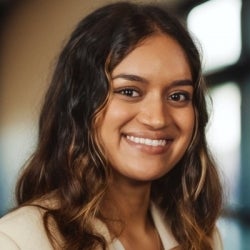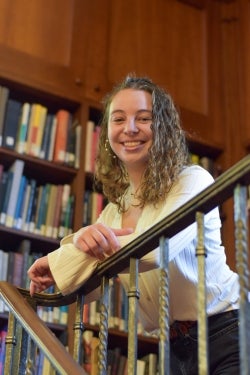Return to the Experiential Learning Homepage
John Dewey reminds us that we do not learn from experience but from reflecting on experience. As colleges and universities expand experiential learning across disciplines, reflection—the bridge between doing and understanding—remains unevenly implemented, inconsistently supported, and rarely evaluated at scale. ExL @ Pitt addresses this gap with a scalable, AI-enhanced framework for reflection that centers student growth, integrates knowledge with experience, and supports instructors in adapting their teaching strategies, turning internships, service projects, research, and global engagement into opportunities for both skill and character development.
What the project aims to do:
- Guides students through pre-, mid-, and post-experience reflections to set goals, track progress, and identify key takeaways.
- Uses AI-assisted analysis of reflection journals to detect themes, measure growth, and provide faculty with meaningful insights through ArcLoom, a technology currently under development.
- The framework will evolve to not only analyze reflections but also present students with tailored situations and models that challenge their thinking, deepen engagement, and guide them toward stronger learning outcomes.
Why it matters:
- Provides students with tools to deepen self-awareness, adaptability, and cultural humility.
- Aligns with our dual approach: advancing skills and fostering character, ensuring growth as both capable professionals and compassionate, responsible citizens.
- Equips faculty with data-driven insights into learning and engagement.
- Ensures reflection is scalable and sustainable, with long-term institutional impact across disciplines.
Collaborations and Partnerships
Faculty and students from across disciplines are joining this effort, supported by the Provost’s Advisory Council on Instructional Excellence (ACIE), the Dietrich School of Arts and Sciences, University Library System, the Center for Teaching and Learning, and cross-campus networks including Steeping and Pouring Possibilities in ExL, the ExL Faculty Retreat, the Annual Cross-Disciplinary Engagement Conference, and the ExL @ Pitt Hub.
We also welcome collaboration with industry and community partners. Beyond the classroom, structured reflection has powerful applications in the workplace, from employee training and leadership development to cultivating adaptability, collaboration, and ethical decision-making. This framework can be extended to support professional growth, organizational learning, and civic impact.
As our colleague Dr. Pat Gallagher reminds us, collaboration itself places us in an experiential mode — one that not only advances knowledge but also invites cultural humility, reflection, and the shared pursuit of deeper understanding.
ExL Data Analytics and AI Team
Gabrielle Fernandes

Gabrielle Fernandes is a fourth-year honors student at the University of Pittsburgh, double majoring in Computer Science and Chemical Engineering with a minor in Chemistry. She has gained hands-on experience in data analytics and software engineering through internships with CAS, a division of the American Chemical Society, and DuPont, as well as her current role as a Data Analytics & AI Intern at Pitt. Her work spans NLP-based reflection analysis, modernizing test frameworks, and optimizing chemical processes, bridging the gap between data-driven insights and real-world engineering. Gabrielle has also served as a Teaching Assistant, guiding more than 70 students in Excel, MATLAB, and C. Passionate about applying analytics to solve complex problems, she brings a global perspective from study abroad experiences in Brazil and Germany, where she explored renewable energy and industrial engineering. She is expected to graduate in December 2025.
Abigail Burgess

Abigail Burgess is a senior at the University of Pittsburgh, double majoring in Linguistics and English Literature and minoring in Turkish and Applied Statistics. She has a wide range of experience with experiential learning, including serving as a research assistant in both literacy education and linguistics. She has also pursued independent field research through a self-directed study on Literary Tourism in London, combining on-site exploration with later curatorial work. Her other experiential learning includes an internship with Solventum’s linguistics data team. Abigail supports her peers in their own experiential learning as an Undergraduate Mentor in the Office of Undergraduate Research. She is also active in community engagement through her role as a Tour Guide for Pitt’s Nationality Rooms and Intercultural Exchange Program and as a member of Pittsburgh’s ballroom and social dance community. She is expected to graduate in Spring 2026.
